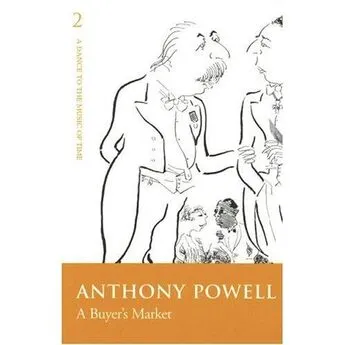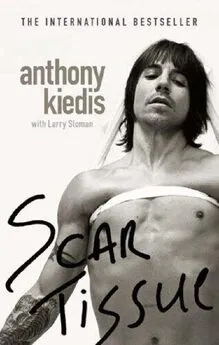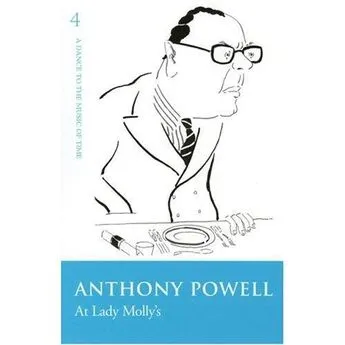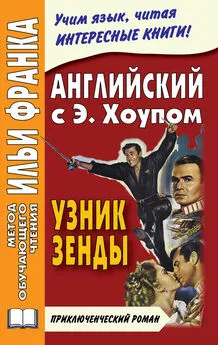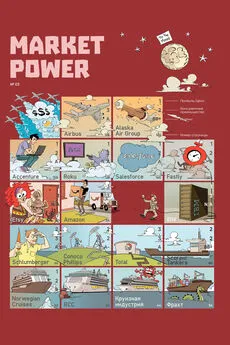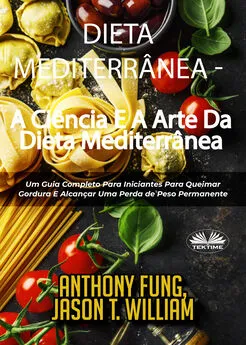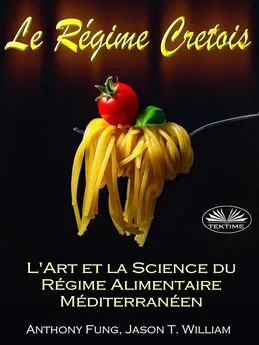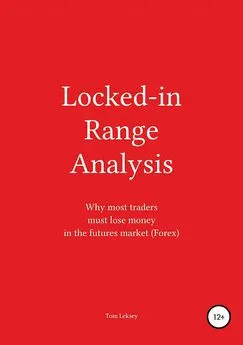Anthony Powell - A Buyers Market
- Название:A Buyers Market
- Автор:
- Жанр:
- Издательство:Arrow
- Год:2005
- ISBN:нет данных
- Рейтинг:
- Избранное:Добавить в избранное
-
Отзывы:
-
Ваша оценка:
Anthony Powell - A Buyers Market краткое содержание
Anthony Powell's universally acclaimed epic A Dance to the Music of Time offers a matchless panorama of twentieth-century London. Now, for the first time in decades, readers in the United States can read the books of Dance as they were originally published-as twelve individual novels-but with a twenty-first-century twist: they're available only as e-books. The second volume, A Buyer's Market (1952), finds young Nick Jenkins struggling to establish himself in London. Amid the fever of the 1920s, he attends formal dinners and wild parties; makes his first tentative forays into the worlds of art, culture, and bohemian life; and suffers his first disappointments in love. Old friends come and go, but the paths they once shared are rapidly diverging: Stringham is settling into a life of debauchery and drink, Templer is plunging into the world of business, and Widmerpool, though still a figure of out-of-place grotesquerie, remains unbowed, confident in his own importance and eventual success. A Buyer's Market is a striking portrait of the pleasures and anxieties of early adulthood, set against a backdrop of London life and culture at one of its most effervescent moments.
A Buyers Market - читать онлайн бесплатно полную версию (весь текст целиком)
Интервал:
Закладка:
Anthony Powell
A Buyers Market
1
THE LAST TIME I saw any examples of Mr. Deacon’s work was at a sale, held obscurely in the neighbourhood of Euston Road, many years after his death. The canvases were none of them familiar, but they recalled especially, with all kind of other things, dinner at the Walpole-Wilsons’, reviving with a jerk that phase of early life. They made me think of long-forgotten conflicts and compromises between the imagination and the will, reason and feeling, power and sensuality; together with many more specifically personal sensations, experienced in the past, of pleasure and of pain. Outside, the spring weather was cool and sunny: Mr. Deacon’s favourite season of the year. Within doors, propped against three sides of a washstand, the oil-paintings seemed, for some reason, appropriate to those surroundings, dusty, though not displeasing; even suggesting, in their way, the kind of home Mr. Deacon favoured for himself and his belongings: the sitting-room over the shop, for example, informal, not too permanent, more than a trifle decayed. His haunts, I remembered, had bordered on these northern confines of London.
Accumulations of unrelated objects brought together for auction, acquire, in their haphazard manner, a certain dignity of their own: items not to be tolerated in any inhabited dwelling finding each its own level in these expansive, anonymous caverns, where, making no claim to individual merit, odds and ends harmonise quietly with each other, and with the general sobriety of background. Such precincts have something of museums about them, the roving crowd on the whole examining the assembled relics with an expert, unselfconscious intensity, not entirely commercial or acquisitive.
On these particular premises almost every man-made thing seemed represented. Comparatively new mowing machines: scabbardless and rusty cavalry sabres: ebony fragments of African fetish: a nineteenth-century typewriter, poised uncertainly on metal stilts in the midst of a tea-set in Liverpool ware, the black-and-white landscapes of its design irreparably chipped. Several pillows and bolsters covered with the Union Jack gave a disturbing hint, that somewhere beneath, a corpse awaited burial with military honours. Farther off, high rolls of linoleum, coloured blue, green and pink, were ranged against the wall like pillars, a Minoan colonnade from which wicker armchairs and much-used pieces of luggage formed a semicircle. Within this open space, placed rather like an emblem arranged for worship, stood the washstand round which the pictures were grouped. On its marble top rested an empty bird-cage, two men-at-arms in lead, probably German, and a dog-eared pile of waltz music. In front of a strip of Axminster carpet, displayed like faded tapestry from the side of a nearby wardrobe in pitch pine, a fourth painting stood upside down.
All four canvases belonged to the same school of large, untidy, exclusively male figure compositions, light in tone and mythological in subject: Pre-Raphaelite in influence without being precisely Pre-Raphaelite in spirit: a compromise between, say, Burne-Jones and Alma-Tadema, with perhaps a touch of Watts in method of applying the paint. One of them — ripping away from its stretcher at the top — was dated 1903. A decided weakness of drawing was emphasised by that certitude — which overtakes, after all, some of the greatest artists — that none of Mr. Deacon’s pictures could possibly have been painted at any epoch other than its own: this hallmark of Time being specially attributable to the painter’s inclination towards large, blank expanses of colour, often recklessly laid on. Yet, in spite of obvious imperfections, the pictures, as I have said, were not utterly unsympathetic in that situation. Even the forest of inverted legs, moving furiously towards their goal in what appeared to be one of the running events of the Olympic Games, were manifested to what might easily have been greater advantage in that reversed position, conveying, as they did, an immense sense of nervous urgency, the flesh tints of the athletes’ straining limbs contrasting strangely with pink and yellow contours of three cupids in debased Dresden who tripped alongside on top of a pedestal cupboard.
In due course two bucolic figures in cloth caps, shirtsleeves, and green baize aprons held up Mr. Deacon’s pictures, one by one, for examination by a small knot of dealers: a depressed gang of men, looking as if they had strayed into that place between more congenial interludes on the race-course. I was not sure how this display might strike other people, and was glad, when exposure took place, that no unfriendly comment was aroused. The prodigious size of the scenes depicted might in itself reasonably have provoked laughter; and, although by that time I knew enough of Mr. Deacon to regard his painting as nothing more serious than one of a number of other warring elements within him, open ridicule of his work would have been distressing. However, all four elevations were received, one after another, in apathetic silence; although the “lot” was finally knocked down for a few pounds only, bidding was reasonably brisk: possibly on account of the frames, which were made of some black substance, ornamented with gold in a floral pattern, conceivably of the painter’s own design.
Mr. Deacon must have visited the house at least half a dozen times when I was a child, occasions when, by some unlikely chance, I had seen and spoken with him more than once; though I do not know why our paths should have crossed in this manner, because he was always reported “not to like children” so that our meetings, such as they were, would not have been deliberately arranged on the part of my parents. My father, amused by his conversation, was in the habit of referring to Mr. Deacon’s painting without enthusiasm; and when, as he sometimes did, Mr. Deacon used to assert that he preferred to keep — rather than sell — his own works, the remark usually aroused mildly ironical comment at home after he was gone. It would not be fair, however, to suggest that, professionally, Mr. Deacon was unable to find a market for his classical subjects. On the contrary, he could always name several faithful patrons, mostly business people from the Midlands. One of these, especially, spoken of as a “big iron man”—whom I used to envisage as physically constructed of the metal from which he derived his income — would, for example, come down from Lancashire once a year: always returning northward in possession of an oil sketch of Antinous, or sheaf of charcoal studies of Spartan youth at exercise. According to Mr. Deacon, one of these minor works had even found its way into the ironmaster’s local art gallery, a fulfilment which evidently gave great satisfaction to the painter; although Mr. Deacon would mention the matter in a deprecatory sort of way, because he disapproved of what he called “official art,” and used to speak with great bitterness of the Royal Academy. When I met him in later life I discovered that he disliked the Impressionists and Post-Impressionists almost equally; and was, naturally, even more opposed to later trends like Cubism, or the works of the Surrealists. In fact Puvis de Chavannes and Simeon Solomon, the last of whom I think he regarded as his master, were the only painters I ever heard him speak of with unqualified approval. Nature had no doubt intended him to be in some manner an adjunct to the art movement of the Eighteen-Nineties; but somehow Mr. Deacon had missed that spirit in his youth, a moral separateness that perhaps accounted for a later lack of integration.
He was not rich, although his income, in those days, allowed the preservation of a fairly independent attitude towards the more material side of being an artist. He had once, for example, turned down the opportunity to decorate the interior of a fish restaurant in Brighton — where he lived — on grounds that the sum offered was incommensurate with the demeaning nature of the work demanded. His means had also enabled him to assemble what was said to be an excellent little collection of hour-glasses, silhouettes, and bric-à-brac of various kinds. At the same time he liked to describe how, from time to time, in order to avoid the expense and responsibility of domestic staff, he deliberately underwent long periods of undertaking his own cooking. “I could always earn my living as a chef,” he used to say; adding, in joke, that he would look “enormously ornamental” in a white cap. When travelling on the Continent he commonly went on foot with a haversack on his back, rather than by trains, which he found “stuffy and infinitely filled with tedious persons.” He was careful, even rather fussy, about his health, especially in relation to personal cleanliness and good sanitation; so that some of the more sordid aspects of these allegedly terre-à-terre excursions abroad must at times have been a trial to him. Perhaps his Continental visits were, in fact, more painful for managers of hotels and restaurants frequented by him; for he was a great believer in insisting absolutely upon the minute observance by others of his own wishes. Such habits of travelling, in so much as they were indeed voluntary and not to some degree enforced by financial consideration, were no doubt also connected in his mind with his own special approach to social behaviour, in which he was guided by an aversion, often expressed, for conduct that might be looked upon either as conventional or conservative.
In this last respect Mr. Deacon went further than my Uncle Giles, whose creed of being “a bit of a radical” was also well publicised within his own family circle; or, indeed, wherever he might find himself. My uncle, however, dealt in substance he knew and, although he would never have admitted as much, even to some extent revered, merely desiring most aspects of that familiar world to be more nicely adjusted to his own taste. Mr. Deacon, on the other hand, was in favour of abolishing, or ignoring, the existing world entirely, with a view to experimenting with one of an entirely different order. He was a student of Esperanto (or, possibly, one of the lesser-known artificial languages), intermittently vegetarian, and an advocate of decimal coinage. At the same time he was strongly opposed to the introduction of “spelling reform” for the English language (on grounds that for him such changes would mar Paradise Lost ), and I can remember it said that he hated “suffragettes.”
These preferences, with the possible exception of decimal coinage, would have been regarded as mere quirks in my uncle; but, as they were presented in what was almost always a moderately entertaining manner, they were tolerated by my parents to a far greater degree than were similar prejudices disseminated by Uncle Giles, whose heartily deplored opinions were naturally associated in the minds of most of his relations with threat of imminent financial worry for themselves, not to mention potential scandal within the family. In any case, aggressive personal opinions, whatever their kind, might justly be regarded as uncalled for, or at best allowed only slight weight, when voiced by a man whose career had been so uniformly unsuccessful as had that of my uncle. Mr. Deacon’s persuasions, on the other hand, could be regarded with tolerance as part of the stock-in-trade of a professional artist, by no means a failure in life, and to be accepted, however unwillingly, as the inevitable adjunct of a Bohemian profession: even valuable in their way as illustrating another side of human experience.
At the same time, although no doubt they rather enjoyed his occasional visits, my parents legitimately considered Mr. Deacon an eccentric, who, unless watched carefully, might develop into a bore, and it would not be precisely true to say that they liked him; although I believe that, in his way, Mr. Deacon liked both of them. The circumstances of their first meeting were unrecorded. An introduction may have taken place at one of the concerts held at the Pavilion, which they sometimes attended when my father was stationed near Brighton in the years before the war. During that period a call was certainly paid on Mr. Deacon in his studio: several small rooms converted to that use at the top of a house in one of the quiet squares remote from “the front.” He had chosen this retired position because the sight of the sea disturbed him at his work: a prejudice for which psychological explanation would now certainly be available.
Читать дальшеИнтервал:
Закладка:
